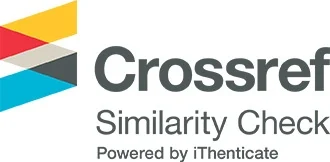Neurobehavioral effect of alprazolam in presence of Ascorbic acid using albino rats
DOI:
https://doi.org/10.65137/lmj.v2i1.32Abstract
Alprazolam is used in the treatment of generalized anxiety, panic attacks with or without agoraphobia and depression. The physiological functions of Ascorbic acid are largely dependent on its oxido-reduction properties. Gamma aminobutyric acid (GABA) is the major inhibitory neurotransmitter in the mammalian brain, and is the major neurotransmitters involved in the development of anxiety. The present study investigates the effects of Alprazolam and Ascorbic acid each alone and in combination on anxiety behaviour and on GABA levels in discrete brain regions of albino rats. Rats were divided into six animals groups (n=10): group 1, the control group, received only a single dose of 1% Tween 80; group 2, received a single dose of Alprazolam 2mg/kg; group 3, received a single dose of 125mg/kg of Ascorbic acid; group 4, received a single dose of 500mg/kg of Ascorbic acid; group 5, received a combination of Alprazolam and Ascorbic acid (125mg/kg); group 6, received a combination of Alprazolam and Ascorbic acid (500mg/kg). Scoring was performed immediately after 30 minutes of drugs administration. Elevated plus maze was used to evaluate the changes in behavior; brain GABA and Ascorbic acid levels were measured by HPLC. Results indicate that Ascorbic acid produced dose dependent anxiolytic effects; it has no sedative effect up to the dose 500mg/kg. Alprazolam produced anxiolytic action without sedation. The combined treatment of Ascorbic acid with Alprazolam did not potentiate the anxiolytic action, but it has additive effect. Acute administration of Ascorbic acid was accompanied by an increase in GABA levels in almost all brain areas studied, leading to anxiolytic action. Ascorbic acid may act as a partial allosteric modulator of the GABAA receptor, since it induces a smaller response in their target cells than do full allosteric modulator Alprazolam. Acute administration of Ascorbic acid (125 or 500mg/kg), selectively increases the Ascorbate levels in striatum, mid-brain and cerebral cortex. Alprazolam did not change Ascorbate levels in all brain areas studiedDownloads
Published
2016-08-01
Issue
Section
Lebda Medical Journal Vol. (2) 2016
How to Cite
Neurobehavioral effect of alprazolam in presence of Ascorbic acid using albino rats. (2016). Lebda Medical Journal, 2(1). https://doi.org/10.65137/lmj.v2i1.32









